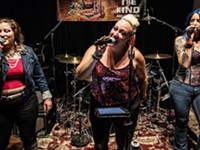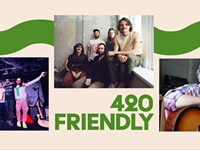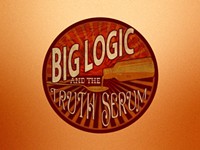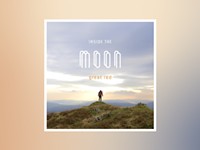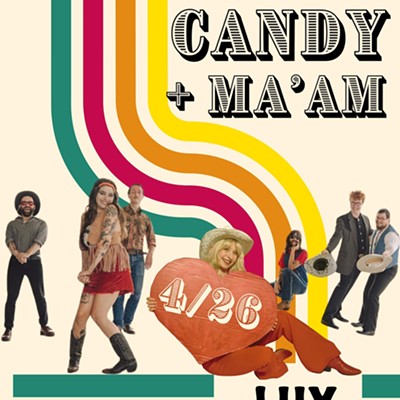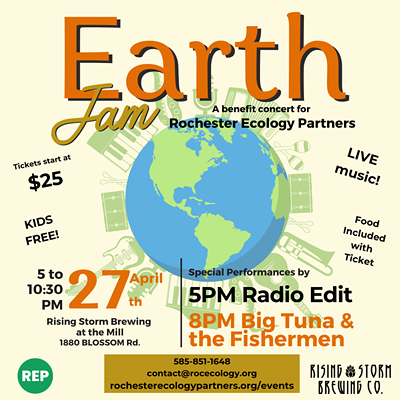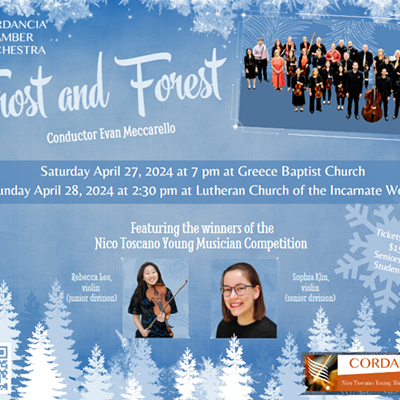[
{
"name": "500x250 Ad",
"insertPoint": "5",
"component": "15667920",
"parentWrapperClass": "",
"requiredCountToDisplay": "1"
}
]
As boisterous and bombastic as hip-hop tends to be, it is still a genre preceded by public misperception, generalization, and out-and-out dismissal. As with any genre of music, the ears of those outside its fan base are often assailed by topical, shallow misrepresentations of the form. Minds get made up, hasty conclusions get drawn. Not only does this leave the listener unchallenged and unengaged, it hurts artists that possess true talent, insight, and soul. They're left holding the bag, to apologize, and languish in the underground.
Rochester is ripe with these artists; positive, innovative talents who mirror our society, raise awareness, or merely entertain with their verbal dexterity and skill. Yet as diverse as our overall music scene is, ignorance and fear make the already uphill battle for artistic recognition that much steeper.
In an effort to clear up, explain, and discuss hip-hop as music, as social commentary, and as an American folk art, City Newspaper invited a number of Rochester hip-hop artists to share their views in a kind of local hip-hop summit. Among those who sat down for our roundtable interview were James Niche, founder of local music production-promotion company ACT LIVE; Subsoil rapper Mooney Faugh; Nick Cialdella, MC and hip-hop promoter at Water Street Music Hall; MC Moses Rockwell; turntablist DJ Ease; beatmaker Thievin' Stephen; and Gunpoets vocalist-rapper Jayhigh. (Rapper Hassaan Mackey was also invited, but was unable to attend.)
While in no way a definitive take on hip-hop in Rochester, what follows is a frank, unapologetic conversation we hope will spawn more debate and discussion. If you have thoughts on the local hip-hop scene, post them on this article at rochestercitynewspaper.com.
CITY: What does the Rochester hip-hop scene have to offer?
James Niche: We have a high concentration of artists here: rappers, artists, promoters, beat makers. It's been going on for a long time, but I think it's really been going on for the past five or six years. A lot of the artists have made a name for themselves outside of town.
Why the past five or six years? What happened?
Niche: I think because of recording. Access to studios got easier. Before, in the early 2000's, you needed a good chunk of change to get in the studio, to get it pressed. Now with the internet, you've got home-studio musicians all over the place. When I started ACT LIVE in 2007, I said, "Wow, there're a lot of musicians putting stuff out there and no one's doing anything with it." These were young kids, 20 or 21 who hadn't been on the road, didn't understand about music marketing. They hadn't done internships at studios, but they had a record and they were great artists. I think there's been a lot more creativity in the scene too, a lot of niches.
Mooney Faugh: Creativity begets more creativity.
Nick Cialdella: I see a lot of collaborations.
Faugh: Yeah, we're doing more stuff with bands.
DJ Ease: There was the underground scene at Java's, before everybody was recording records. Guys like Mooney, M. Coop, and Hassaan Mackey before they were making records.
Faugh: We'd see guys like Hassaan with bands like Filthy Funk. That influenced us.
Ease: We've always had artists, but they had to leave town — I moved out of Rochester eight, nine years ago. I think Hassaan might be the exception. He was the first one to have a record out. Discolobos pressed it on Fish and Crown.
How does the hip-hop artist's struggle compare to a rock band's struggle?
Jayhigh: It's kind of like punk rock, DIY, how we throw together independent shows. Coming from Ithaca, it was very interesting to see that element come into hip-hop culture here, because it's kind of based in the rock world. And everyone has a team or a movement and the internet makes it spread like wildfire.
The good and the bad?
Faugh: Yes. It's like when punk rock was at its peak. People didn't want to have punk-rock shows. Hip-hop has been stigmatized in a similar way. We couldn't get hip-hop into venues in 2006. After Red got shut down and Milestones's hip-hop night got shut down it was tough not to get grouped or generalized.
Was this — is this — due to a racial or social disconnect?
Faugh: For the outsiders, yes. There is some aggression in hip-hop. There is some connection, but no causation. It's not like they never did a violent act before and then did it at a hip-hop show. There is an aggressive, violent aspect to some hip-hop and some violent people may come out to see it. But it's a tiny, tiny percentage. I'm sure if someone was killed at a karaoke bar you wouldn't fear karaoke.
But the music somehow gets viewed as a threat.
Faugh: Alcohol is more of a threat than the music.
Cialdella: I said the same thing after the Bug Jar shooting. [Editor's note: This is in reference to the death of Deavoughn D. Hernandez-Ruffin, who was shot to death outside of the club after a fight broke out during a hip-hop show at the Monroe Avenue venue on June 18.] Other venues are following suit, they're scared.
Niche: Of course there's violence in music. There's violence in all kinds of art. Not even 24 hours after the shooting, the paper was just pounding hip-hop, hip-hop, hip-hop. Talk about key words. Then you had the police chief over and over with "rap battles" and "battle rap."
Faugh: As if they got in a fight over the music.
Niche: This was an isolated incident that was sensationalized.
How do you distance yourselves from this?
Faugh: The music should do it.
But how does the music's message reach those who don't hear the music in the first place?
Niche: We gathered everyone at the Liberty Pole the Sunday following [the shooting incident] and demonstrated to the press that we don't stand for this. We made up banners with the victim and his daughter on it. We made sure that everyone down there was sending a positive message. We weren't there to protest anything or to blame anybody. We were there to show we were moving on and doing something positive with our abilities as a group.
Does mainstream hip-hop help or hurt people's perception of underground hip-hop?
Ease: Yeah, it hurts. I'm a DJ that plays both — I'll play a hip-hop party in Vegas and then the most underground party in Rochester. And I got called out, "Oh DJ Ease, he's a commercial DJ." So I got called out to a battle. I came out on top skill-wise, but it was a circus.
So it hurts your credibility with your peers as well?
Faugh: Some hip-hop artists look down on Subsoil because we have a band — like it's a gimmick.
Once upon a time having a DJ in a band was considered a gimmick
Faugh: Yeah, now it's opposite.
Is hip-hop commenting on culture, or is it creating culture?
Niche: I think initially hip-hop commented on the culture. You had MCs getting on the mic, commenting on the culture, feeding off what was going on. Now, I think you've got a music that's pushing a certain culture. You've got people in offices that are very smart, they know exactly what message they're sending. They know exactly what they're doing with this music and they're promoting consumerism, misogyny, all these ideas that are common in hip-hop, and therefore in youth culture today.
It seems like a vicious cycle. How do you break out of it?
Faugh: The artists that don't want to be a part of that message, like ourselves, we're trying to craft it the other way, to push the culture the other way. We're saying this is what the culture is about — expression and unity — and here's where they want to take it, and we don't want to let them take it there. We get to decide and say what hip-hop is now.
Jayhigh: I think, as I've gotten older, I'm starting to realize the key is to have camaraderie between the artists. So people see that hip-hop can be a catalyst for stopping violence in Rochester. Violence in Rochester has been so pervasive for so long that the hip-hop community can take it on and actually get some press. We're unified, and it's like, we're artists from a culture that creates violence from lyrics or from our lifestyle — or the idea of the lifestyle — but we can also stop it. That's possible.
Thus becoming a positive influence on the culture, the fans, and emerging artists. Breaking the commercial mold.
Cialdella: This is an opportunity where we can really curb those trends.
Ease: I'll play in a night lub and people want to hear "Call Me Maybe," and I just can't. Not only is it a terrible song, but this music is rammed down their throat every day.
Thievin' Stephen: There's no other explanation for so many artists in Rochester sounding like they're from Atlanta.
Ease: Yeah, if it weren't for local radio playing nothing but that.
Faugh: There are other outlets.
Such as?
Ease: Artists have to realize you can be true to yourself and still make it with things like YouTube.
Is what you do entertainment or social commentary?
Faugh: Both. Satire is fun, but it's good to be impressive. If it's interesting and a social commentary I go with it, but if it's tongue-in-cheek, a drug reference, or sex, I'll use that too.
Do you feel any responsibility as to your content?
Faugh: No, people should know how to use art. If you like parts of it and use it for your life, if you don't like parts of it, you dismiss it. That's your job. I have to package it in some way that's palatable or I'd just be rambling and people wouldn't give a shit.
Cialdella: I used to try to write to entertain and I'd get extreme writer's block. So it's got to be something that's playing in my life.
Is hip-hop still a black thing? Are white artists trespassing?
Faugh: To me it isn't. It doesn't make any sense. Calling me a white rapper is like saying black doctor. That may be offensive to some people. I'm here to stop generalizations altogether. You can't say hip-hop is violent even though some violent people are attracted to it. You can't say hip-hop is art for black people even though some black people like hip-hop.
But hip-hop arose from the black experience.
Stephen: So did rock and jazz.
Why doesn't there seem to be any local female MCs? Where are the ladies?
Faugh: That's a good question. It's probably because of all the misogynistic bullshit. It's a man's world. But there is a new wave coming up.
Ease: They're not respected. They've got to deal with the producer hitting on them. We definitely need females.
Jayhigh: It seems with the female MCs, they always seem to be forced to have some male bravado.
How can the Rochester hip-hop scene grow?
Faugh: We need more venues.
Niche: We live in a pretty conservative city.
Conservative or lazy?
Niche: We just don't have a lot of events that are diverse.
Jayhigh: They think artists have all the power. It's pretty grandiose to think that, but the control is with the fans, the people. Our duty is to reflect the world so that the people will love that and participate.
Faugh: Or it's pointless. People complain when I post events on FB and I tell them, "But this is an event in the real world."
Moses Rockwell: The success of the scene has a lot to do with how we relate to each other — the artists specifically. Sometime the MCs don't support each other because there're so many of us. Everybody wants to be the "it" thing. And if you don't have a competitive spirit you get distanced from it. Everyone wants to be the prom king, I just want to dance.

